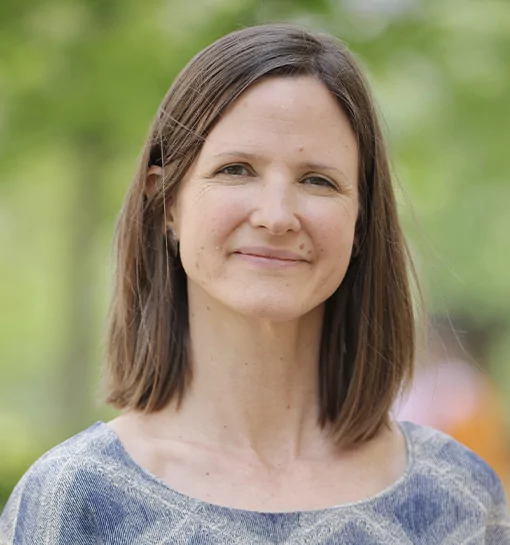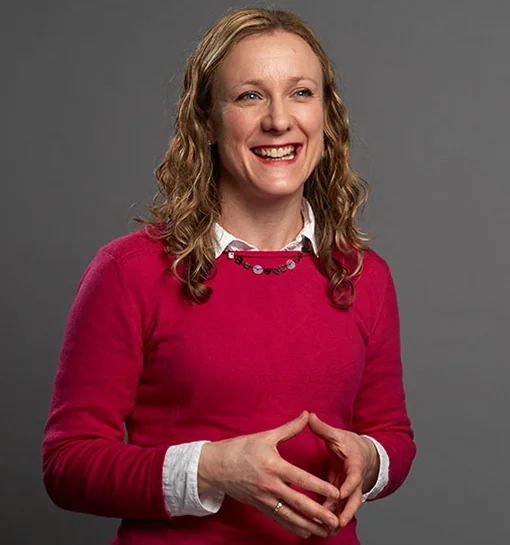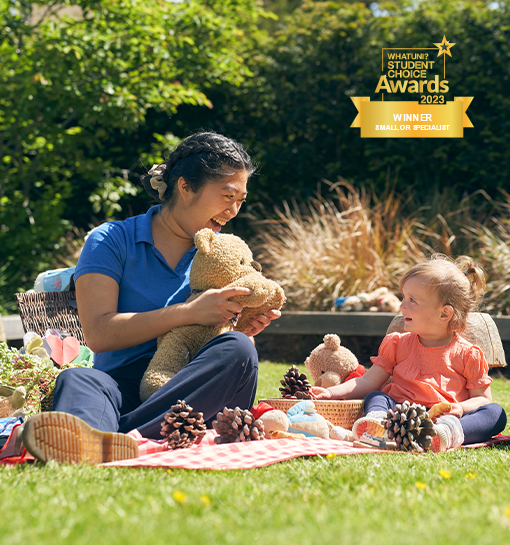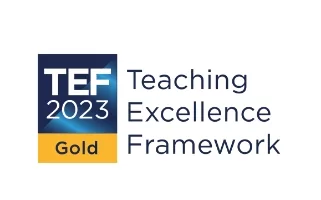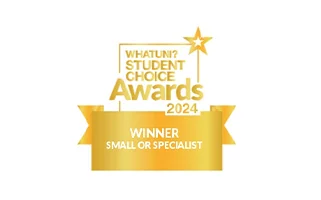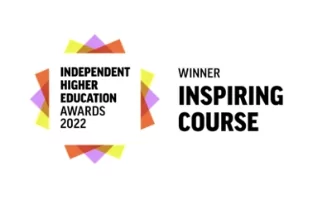Norland publishes second volume of world's first research journal dedicated to home-based childcare
24 June 2024
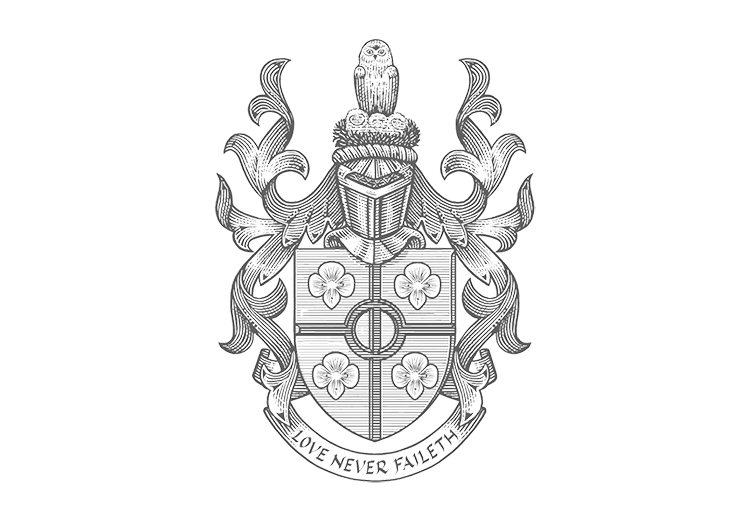
Norland is delighted to announce the publication of the second volume of its pioneering Norland Educare Research Journal.
The world’s first research journal dedicated to home-based early childhood education and care focuses on research that advances and enhances the knowledge base for professional practices and policies in the field.
The international double-blind peer-reviewed early childhood research journal is published annually, online only. It is a fully open access journal offering free-of-charge publication to researchers and authors, and free access to papers for readers worldwide. The second volume is fronted by an editorial piece titled ‘Revisioning and reforming educare in the 21st century: the synergetic confluence of professional innovative practices and scientific evidence’ and is a collection of papers which bring to the fore critical issues about young children’s education and care.
In an interview conducted by Principal Dr Janet Rose, Professor Edward Tronick reinforces the critical role of positive interactions and relationships between children and their caregivers. Professor Tronick is Distinguished Professor of Psychology at the University of Boston Massachusetts and Chief Faculty for its acclaimed Infant Parent Mental Health Fellowship, which Dr Janet Rose and Norlander and Associate Lecturer/Consultant Julia Gaskell recently completed. Other paper topics include a historical perspective on loving relationships with kin and professional alloparents, a review of research on intergenerational care, scoping studies on baby sleep and baby weaning, and two book reviews covering green teaching and home learning environments.
Editor-in-Chief Dr Theodora Papatheodorou concludes in her editorial that the papers in this volume reinforce the African proverb ‘It takes a village to raise a child’, both literally and metaphorically. She argues that greater collaboration between caregivers, professionals, researchers and local communities is essential to ensure innovative educare approaches and practices are both grounded in research and contextualised to the needs and resources of individual families and local communities.
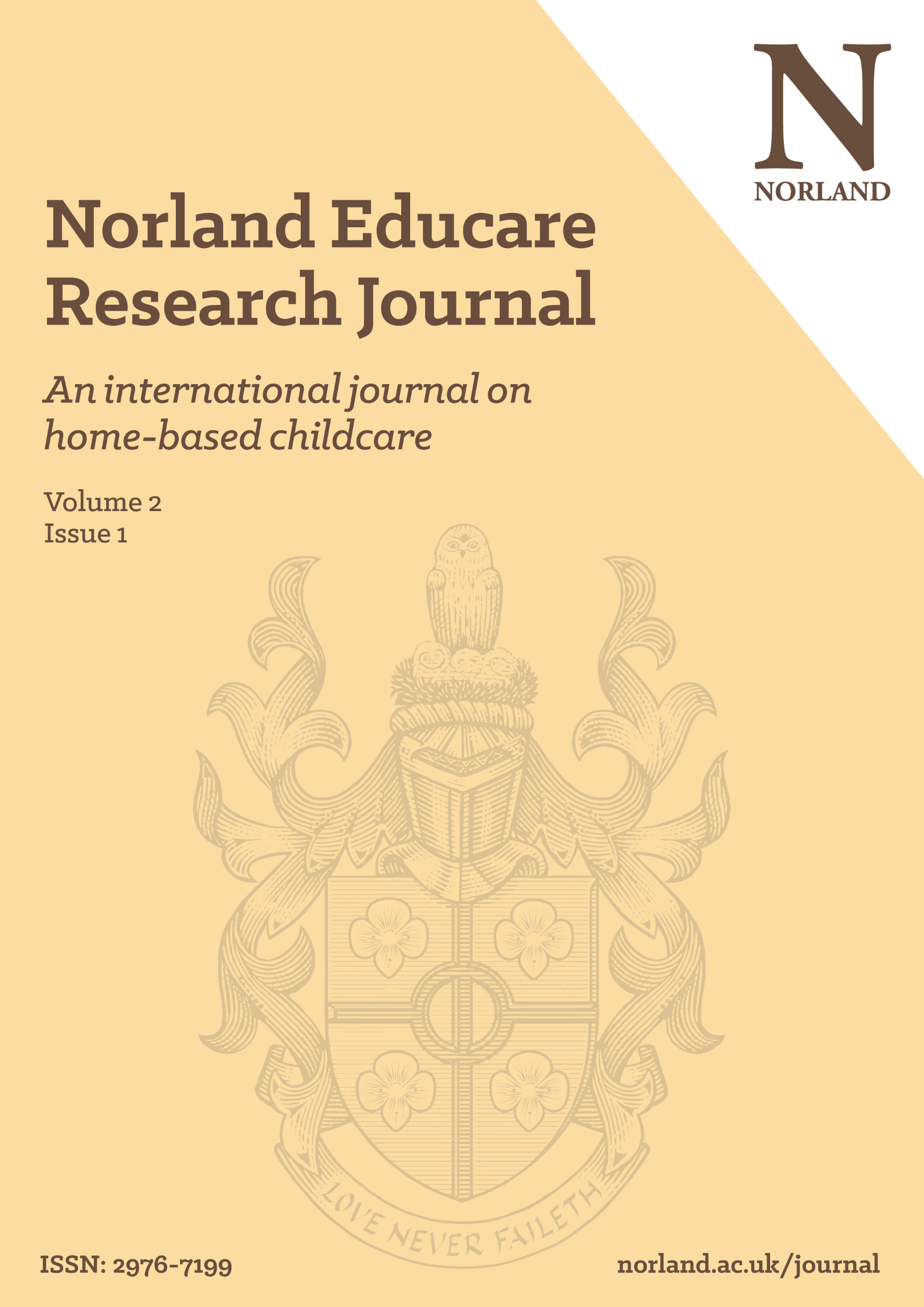
“The rapid societal changes, global and local economic uncertainty, environmental and technological advances and their challenges, concerns about child and family wellbeing and the exorbitant cost of childcare mandate serious rethinking, revisioning and reform of educare in the 21st century”, says Dr Theodora Papatheodorou, Editor-in-Chief.
“The Norland Educare Research Journal brings together existing research addressing these issues”, adds Dr Papatheodorou, “and encourages further knowledge production in the field for professional practices and policies, beyond institutional/centre-based childcare. It opens the debate for the expansion of alternative approaches to and models of educare which invest in the capabilities, capabilities and resources of communities and families and utilise professional knowledge and expertise.”
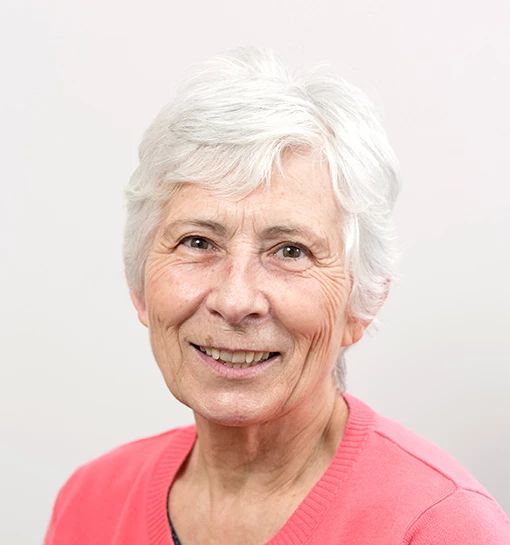
“This timely collection of papers offers an invitation to consider the significance of evidence-based approaches to childcare alongside explorations of loving interactions and attuned relationships with caregivers across communities and generations”, says Dr Rebecca Digby, Head of Teaching, Learning and Research.
“Both shine a light on broader conceptualisations of childcare”, Dr Digby adds, “and provide valuable insights into lived experience, know-how and research-informed approaches.”
For further information and to read the second volume, visit the Norland Educare Research Journal webpage.
